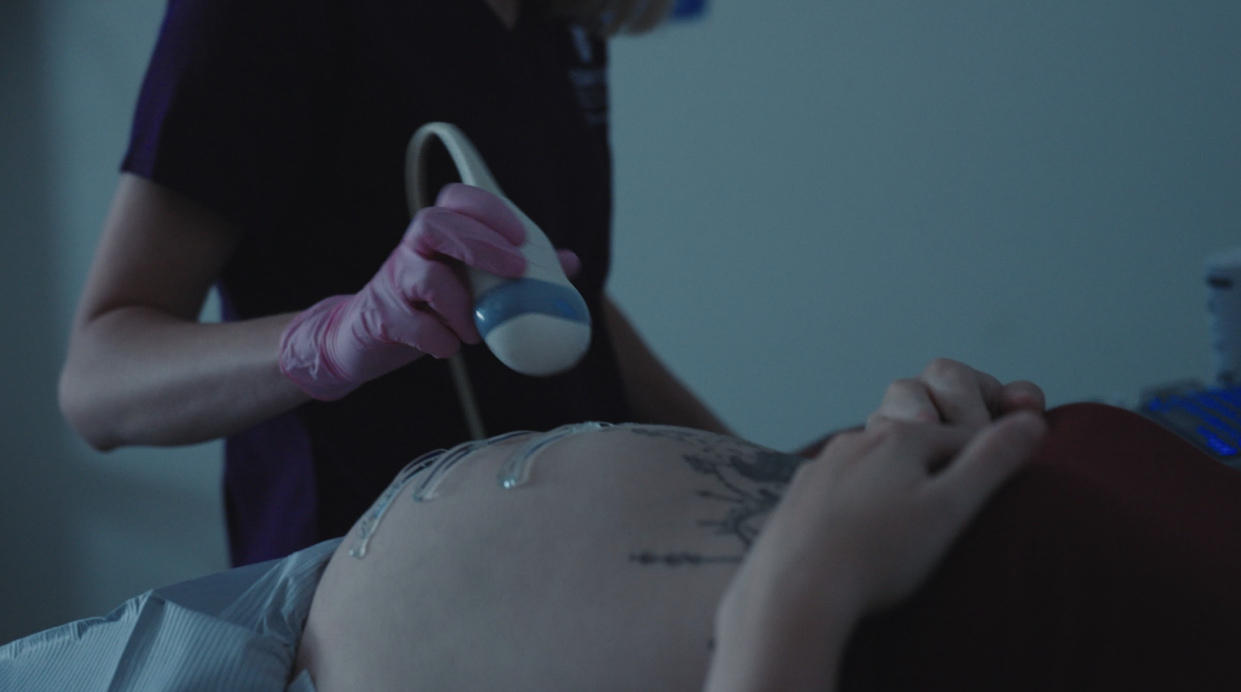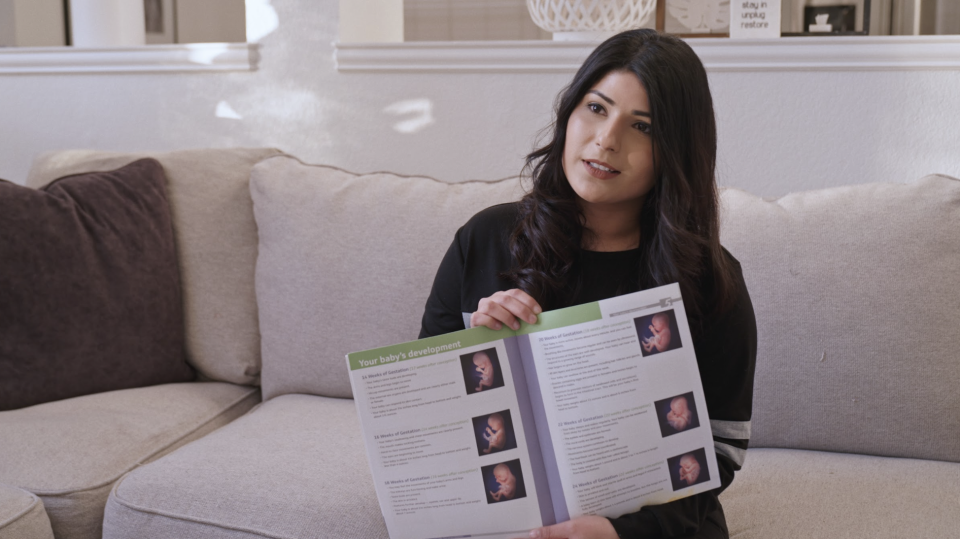‘Preconceived’ Review: The Tangled Web of Anti-Choice Politics Preys on Prayer in Enlightening Documentary

The war on women’s rights has been happening for centuries, and while the overturning of Roe v. Wade was a devastating setback, there is another marker to check the pulse of abortion rights in the U.S.: the rise of state-funded crisis pregnancy centers.
The aptly-titled documentary “Preconceived,” co-directed by Sabrine Keane and Kate Dumke, follows some of the aforementioned CPCs — or “fake clinics” — that are branded to appear as if they are abortion healthcare providers, but instead are facilities run by evangelical political organizations that have no medical legitimacy. California pro-choice foundations were among groups that launched investigations into the false medical advice of non-medical clinics, but CPCs were ruled by the state Supreme Court to be protected by freedom of speech. In short, CPCs don’t have to disclose to clients that they are not medical facilities, leaving CPCs an entirely unregulated industry.
More from IndieWire
Cinephiles might recognize the work of a CPC in “Never Rarely Sometimes Always,” in which a non-medical ultrasound results in the wrong conception date for an embryo, leading the film’s main character to trek across various states to receive a more invasive abortion in her second trimester due to the misinformation. Pro-choice activists will recognize CPCs for the viral advertisements asking if you are pregnant, in trouble, and spiritual.
There are now less than 800 abortion providers in the United States, and over 2,500 CPCs. The centers receive half-a-billion dollars in taxpayer money. Crisis pregnancy centers require employees to provide proof of their Christianity and pastor referrals; the centers target lower income communities with alleged Black-washing ads, Spanish-only websites, and free childcare supplies.
CPCs such as Stanton Healthcare, whose well-spoken and charismatic president and CEO Brandi Swindell is right out of central casting for a true crime docuseries, have no shame in renting office space next to Planned Parenthoods or abortion facilities. As Swindell explains, it’s no different from an Arby’s being side by side to a Wendy’s: It’s merely good ol’ fashioned all-American capitalist competition.
Again: We’re talking about women’s healthcare here.
“Preconceived” examines CPCs in Louisiana, California, Texas, and other states with varying degrees of abortion access. The documentary was filmed in the lead up to the overturning of Roe v. Wade, and its debut at the SXSW Film & TV Festival in the Documentary Spotlight section comes on the heels of Alabama ruling that frozen embryos have more rights than women.
What makes “Preconceived” so alarmingly timely isn’t just its devastating subject matter, but the presentation that this is a decidedly American way of dealing with healthcare, women’s rights, and reproductive autonomy. Just as Swindell alluded to with her fast food analogy, it all boils down to money, power, and politics. Forget Big Pharma, it’s about Big Faith, by way of CPCs.
CPCs have become more popular recently, due to the legislative push for toting abortion pill reversal, aka attempts to counteract the first pill with progesterone. The “reversal” fallacy doubles down on the belief that women change their minds too much to stick to one decision themselves; instead, why even have a choice at all? Crisis pregnancy centers throw out the science in lieu of Bible studies, literally. Yet “Preconceived” shows all angles of both hypocrisy and blind faith found in the halls of these centers. The amount of access in this documentary is truly incredible.

“It just felt sort of weird to have any sort of religious imagery in what I thought was a healthcare center,” a woman who was seeking an abortion recalled of entering a CPC, one of the few resources found in her local area at the time.
CPCs are open about pressuring teens to carry their unplanned pregnancies to full-term, and emphasize the statistically inaccurate misconception of “regret” surrounding abortion. (The Turnaway Study found that women denied abortions carry more regret years after having children than those who did in fact terminate their pregnancies.)
In addition to undermining the sheer choice of body autonomy, CPCs also spout that having an abortion can “cause breast cancer or infertility,” neither of which are medically proven. The illusion of care found at these centers literally shows the organized preying through prayer on vulnerable women.
“Preconceived” is a triggering as it is educational: The documentary expands beyond the racket of CPCs and into the “pro-life” (the correct political term is anti-choice) influencer space, with women who provide baby showers, photoshoots, and babysitting services to mothers of unplanned pregnancies. The influencers offer more support than the right-wing politicians who restrict healthcare access but offer no solutions; yet, the main influencer shown in the documentary criticizes modern “woke” culture for “celebrating” abortion.
“Consent to sex is consent to pregnancy, whether you want it to be or not,” the influencer says, seemingly ignoring the concept of sex without consent and pregnancy out of assault. The influencer keeps saying that it’s just her opinion that women should choose to have children and not let their situations dictate whether or not they could be viable mothers. The irony of her missing the fact that it is her own choice to have an opinion is subtly underlined by the filmmakers.
“Preconceived” later charts how abortion became a tentpole right-wing religious issue and by proxy, a conspiratorial response to liberal causes. Most CPCs in the U.S. have the same tax shell. “Preconceived” shares the facts and lets the audience reach their own conclusions. The wide range of interview subjects include conservative Christians, coupled with pro-choice Catholics, licensed abortion providers and CPC “medical” workers, and even the CEO of Heartbeat International, an organization that data mines information from national CPCs that claim to have their own form of HIPPA protection (they don’t).
“Preconceived” faces women’s healthcare head-on, and while the structuring of the doc may have benefitted from a different chronology at times, the film’s message is resoundingly poignant. As an interviewee states in the closing frame: “Despair is the last act of oppression.” Thanks to this film, there is a bit more hope on the horizon.
Rating: B+
“Preconceived” premiered at the 2024 SXSW Film & TV Festival. Is it currently seeking U.S. distribution.
Best of IndieWire
Sign up for Indiewire's Newsletter. For the latest news, follow us on Facebook, Twitter, and Instagram.

